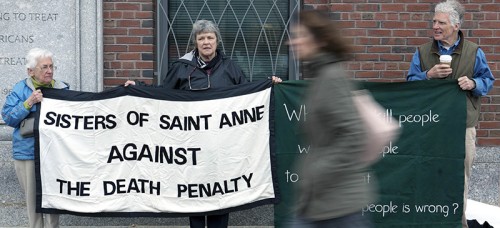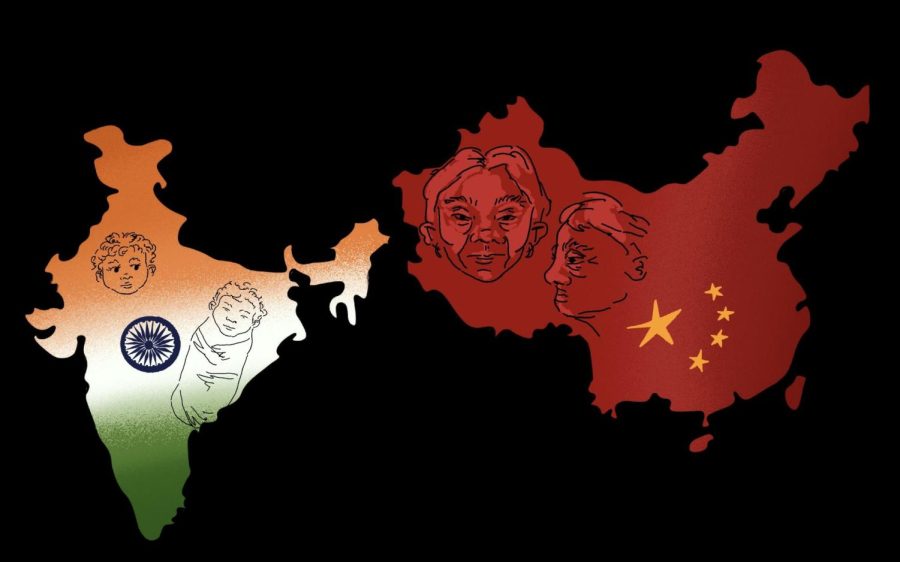
As a nation of relative diversity, we enjoy putting others and ourselves into neat little boxes. When it comes to political expectation, the establishment-minded and god-fearing conservative enjoys the cozy affluence of the Republican Party whose members reject all but the most critical of government functions. Across the aisle, the radical and free-thinking liberal fights “the man” and “the system” within the Democratic Party who should welcome the guiding hand of Uncle Sam. But death, as life would have it, has an inclination towards complication.
There is a perception — and indeed, a reality — of core “conservative” values, even if what we think of as the prototypical “Conservative America” — yachts and Ralph Lauren sweaters, draped in pearls with a side of boat shoes — is as wide and varied as its counterpart, “Liberal America” — free drugs, free love and bleeding heart humanitarianism that’s sprinkled with dovish leanings. Obviously, neither “America” is completely fair to its inhabitants. But there is some consistency when it comes to their values.
In pop culture, there is perhaps no conservative stance more ubiquitous than being “pro-life,” or against abortion. According to a poll conducted by the Washington Post in 2013, 68 percent of self-identified conservatives believed that abortion should be illegal in all or most cases.
However, this belief runs in direct conflict with another conservative staple, one that has bulletproof popularity in states such as Texas or Oklahoma that run the deepest shade of red: the death penalty. According to a Pew Research study done in 2012, 84 percent of conservative Republicans across the nation support the death penalty. Does being pro-life and pro-capital punishment make a contradiction?
It depends on who you ask.
Bill Martin, a professor of philosophy at DePaul University, grew up in South Carolina. Drawing on his experience from living in the South, he said he knew many individuals who were both pro-life and pro-death penalty.
“Fundamentalist Christians justify it in the terms of original sin, and that, when you’re born, you’re born into sin,” he said. “Therefore, you’ll have to pay for your sins (eventually), but until you’re born, you’re essentially innocent.”
Scott Paeth, a professor of religious studies at DePaul, took the idea a step further.
“Some of the distinction between conservative and liberal breaks down over these issues,” he said, “and conservatives (being) against abortion on the one hand and for the death penalty on the other generally has to do with the moral status of innocent life.”
Paeth continued, saying, “It’s the idea that an unborn child, assuming the full dignity of human life and all the rights that go along with that, come to constitute innocent life. In the case of the death penalty, you’ve got a person who’s been convicted of committing a particular crime and therefore loses the presumption of right to life that an unborn child would have.”
The sanctity of human life is fiercely contested across the many doctrines of modern Christianity. The Catholic Church, for instance, believes that all life is sacred from the moment of conception until natural death, and therefore advocates against both abortion and the death penalty. However, the majority of Christians in America are split. People who identify as part of a religion may not necessarily subscribe with their entire mind, body and soul to institutional doctrine.
Nicole Been, president of DePaul College Republicans, is a self-described hardcore conservative Catholic who illustrates this modern gap: she is adamantly pro-life, but also strongly supports the death penalty.
“Babies are innocent, they’re in the womb — they’re not murdering anyone,” she said. “These people who are convicted are convicted of the most heinous crimes in society.”
The trial of the surviving Boston Marathon bomber, Dzhokhar Tsarnaev, brought a new round to the death penalty debate. As of press time, his case is in the penalty phase, with government prosecutors pushing heavily for a death penalty sentence. For Been, there were no factors that would have detracted from his deserving capital punishment — no matter his age, background or the possibility of his being manipulated by his late older brother.
“If you commit one of the most heinous crimes, taking a life purposively with that intent, murder someone, I don’t think it should matter if you’re 75, 40 or 16,” she said.
However, Martin advocated for a more cautious approach.
“There’s stuff mixed up in (the Boston Marathon trial) that’s just vengeance, mixed up with questions of justice, and what a justice system is going to be,” he said. “When you make that part of the legal structure, it’s just a bad way to go. It’s not justice anymore — it’s vengeance in this notion of closure.”







